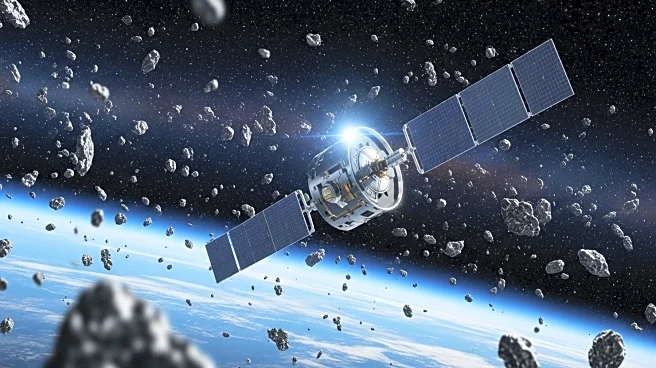What's Happening?
The rapid increase in satellite launches has led to a growing concern over orbital debris, posing risks to commercial operations and national security. Current policies, such as the FCC's five-year post-mission disposal requirement, aim to mitigate debris but may not be sufficient for the evolving space ecosystem. Companies like SpaceX and Amazon's Kuiper are taking steps to reduce debris risk, but experts call for more dynamic models and international coordination to manage the scale and complexity of space activities. The need for propulsion and situational awareness systems is emphasized to ensure long-term sustainability.
Why It's Important?
The accumulation of orbital debris threatens the sustainability of space operations, impacting both commercial and governmental activities. Effective debris management is crucial to maintaining access to space and preventing collisions that could disrupt services and damage satellites. The call for updated policies and international cooperation highlights the urgency of addressing this issue to ensure the continued growth and safety of the space industry. Companies that prioritize orbital sustainability may gain a competitive advantage in the evolving space market.









